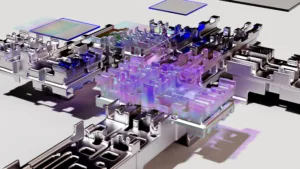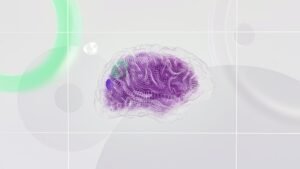Table of Contents
Introduction
Artificial Intelligence (AI) has rapidly evolved in recent years, making significant advancements in various domains of our lives. One of the intriguing concepts surrounding AI is the idea of singularity. Technological singularity represents a hypothetical point in time when AI surpasses human intelligence and continues to rapidly improve itself autonomously. In this article, we will delve into the depths of singularity, exploring its meaning, implications, and the potential it holds for our future.
Understanding Singularity: A Paradigm Shift in AI
Singularity in AI: Unleashing the Power of Artificial Intelligence
The Journey to Singularity
Evolution of AI: From Narrow to General Intelligence

Artificial Intelligence (AI) has come a long way since its inception. Initially, AI systems were designed to perform specific tasks, a concept known as narrow intelligence. These early systems could excel at tasks like playing chess or solving mathematical equations, but they lacked the ability to generalize and adapt to new situations. However, with the advancements in machine learning and deep learning algorithms, AI has evolved to possess general intelligence.
Today, AI algorithms can learn from vast amounts of data and identify patterns, making them capable of processing complex information and drawing conclusions. This evolution has paved the way for the concept of singularity in AI, where machines possess human-level intelligence and surpass our cognitive abilities.
Defining Singularity: A Point of No Return
Singularity refers to the hypothetical point at which AI surpasses human intelligence and continues to improve itself, leading to an exponential growth of technological capabilities. This concept, proposed by mathematician John von Neumann, suggests that once singularity is achieved, the progress and innovation enabled by AI would occur at an unprecedented rate.

At singularity, machines would possess the ability to learn, reason, and make decisions on their own, without human intervention. This idea has fascinated scientists and researchers, igniting debates and discussions about the potential implications and consequences of such a technological breakthrough.
Accelerating Technological Advancements: Moore’s Law
One of the driving forces behind the journey towards singularity is Moore’s Law. Coined by Gordon Moore, co-founder of Intel, this observation states that the processing power of computer chips doubles approximately every two years. This exponential growth has fueled the rapid development of AI technologies, allowing for more sophisticated algorithms and faster computing systems.
As the power and efficiency of computer hardware continue to increase, AI systems can process larger volumes of complex data and perform intricate tasks at an unprecedented speed. This acceleration of technological advancements brings us closer to achieving singularity and unlocks the full potential of AI.
The Role of Machine Learning and Deep Learning in Singularity
Machine learning and deep learning play a pivotal role in the journey towards singularity. These branches of AI enable systems to learn from data, identify patterns, and make predictions, without being explicitly programmed for each specific task.
Machine learning algorithms, such as neural networks, have revolutionized various domains by making breakthroughs in image recognition, natural language processing, and speech synthesis. Deep learning, a subset of machine learning, utilizes multi-layered neural networks to process data in a hierarchical manner, mimicking the structure of the human brain.
The iterative process of training these algorithms with large datasets allows them to continuously improve their performance and achieve increasingly sophisticated levels of general intelligence. These advancements in machine learning and deep learning are vital stepping stones towards achieving singularity.

The Impact of Singularity on Society and Technology
Singularity has the potential to revolutionize society and transform various aspects of our daily lives. The impact of this technological breakthrough transcends industry boundaries and redefines how we interact with technology.
Superintelligence: A New Era of Intelligence
Once AI reaches the point of singularity, it would possess superintelligence, surpassing human intellectual capabilities across a wide range of tasks. This superintelligence could result in groundbreaking advancements in various fields, including science, medicine, and engineering.
Superintelligent AI systems would have the power to solve complex problems, make scientific discoveries, and develop innovative solutions at an unprecedented rate. The collective intelligence of these machines would far surpass that of human beings, opening doors to previously unimaginable possibilities.
Beyond Human Capabilities: Enhanced Problem Solving and Creativity
Singularity would enable AI systems to surpass human limitations and excel in areas where human intelligence falls short. By leveraging vast amounts of data and processing power, AI could offer unique insights and solutions to complex problems.
Additionally, AI systems could enhance creativity, generating novel ideas and artistic creations that challenge human imagination. From music composition to painting masterpieces, AI-driven creativity has the potential to redefine artistic boundaries and inspire new forms of expression.

Disruption of Labor Market and Job Automation
The journey to singularity raises concerns about the future of work and its potential disruption. As AI continues to evolve and acquire human-like intelligence, it may replace certain job roles that were once exclusive to humans.
Routine and repetitive tasks, such as data entry and assembly line work, are particularly susceptible to automation. However, the displacement of certain jobs also presents opportunities for humans to focus on more intellectually stimulating and creative endeavors. The nature of work and the skill sets required may undergo significant transformations as we adapt to an AI-driven future.

Ethical Concerns and Potential Societal Challenges
As AI progresses towards singularity, ethical concerns and societal challenges become increasingly important. Issues surrounding privacy, bias, and the potential for misuse or unintended consequences must be addressed to ensure responsible and beneficial deployment of AI technologies.
The ethical implications of AI decision-making and AI’s impact on social dynamics demand careful consideration. Transparency and accountability should be fundamental principles guiding the development and deployment of AI systems to minimize potential harm and maximize societal benefit.
Singularity in Everyday Life
Singularity has the potential to revolutionize various aspects of our daily lives, transforming the way we interact with technology and enhancing our overall experiences.
Smart Homes: AI-Powered Automation

In a singularity-driven future, our homes would be equipped with AI-powered automation systems that anticipate our needs and preferences. From adjusting the lighting and temperature to managing energy consumption, AI algorithms would learn from our behaviors and create personalized environments for optimal comfort and efficiency.
Healthcare: Revolutionizing Diagnosis and Treatment

Singularity would have a profound impact on the healthcare industry, enabling advanced diagnosis and treatment methods. AI systems with superintelligence could analyze vast amounts of medical data, identify patterns, and provide accurate diagnoses. This would enable early detection of diseases and personalized treatment plans, leading to improved patient outcomes.
Transportation: Autonomous Vehicles and Efficient Commute

The transportation industry would undergo a significant transformation with the advent of singularity. Autonomous vehicles, powered by AI, would navigate our roads, reducing accidents and congestion. Commutes would be more efficient, allowing us to utilize our time more effectively. Additionally, AI algorithms could optimize logistics and transportation networks, minimizing waste and enhancing supply chain efficiency.
Entertainment and Media: Personalized User Experience
Singularity would revolutionize the entertainment and media landscape, enhancing user experiences through personalized recommendations and immersive content. AI-powered algorithms would analyze our preferences, behaviors, and consumption patterns to curate content tailored to our individual tastes. Virtual reality and augmented reality experiences would become more sophisticated and interactive, blurring the boundaries between the physical and virtual worlds.
The Roadmap to Singularity: Challenges and Opportunities
While singularity holds immense potential, several challenges and uncertainties lie ahead that must be addressed for the responsible development and deployment of AI technologies.

Unleashing the Full Potential of AI
To unleash the full potential of AI, it is crucial to continue pushing the boundaries of research and development. This entails investing in cutting-edge technologies, fostering interdisciplinary collaborations, and creating an environment conducive to innovation. By doing so, we can accelerate the journey towards singularity while ensuring the safe and beneficial use of AI.
Overcoming Limitations: Ensuring AI Safety and Privacy
The development of AI must be accompanied by robust safety measures and privacy protections. AI algorithms should be designed with failsafe mechanisms, ensuring they do not exhibit harmful or unintended behaviors. Additionally, privacy considerations should be at the forefront, ensuring that personal data is protected and consent is respected throughout the AI ecosystem.
Encouraging Collaboration: Public-Private Partnerships
Realizing the potential of AI requires collaboration and partnerships among stakeholders. Governments, academia, industries, and civil society must work together to establish ethical frameworks, regulatory guidelines, and standards that govern the development and deployment of AI technologies. Open dialogue and knowledge-sharing platforms can foster responsible AI innovation.
Addressing Ethical and Legal Implications
As AI advances towards singularity, it is crucial to address the ethical and legal implications of this transformative technology. Clear guidelines and regulations should be established to ensure fairness, accountability, and transparency in AI decision-making processes. By considering the broader societal impacts and promoting responsible AI practices, we can navigate the murky ethical terrain surrounding singularity.
Navigating the Uncertainties
As singularity approaches, uncertainties abound. AI should not be viewed as a panacea but rather as a tool that requires careful stewardship. Predicting the exact timeline or implications of singularity is challenging, as it involves numerous variables and unknowns. It is essential to approach this journey with a balance of optimism, caution, and a commitment to ongoing evaluation and adaptation.
The Black Box Problem: Understanding AI Decision-Making
One of the challenges AI researchers face is the black box problem, which refers to the lack of interpretability of AI systems’ decision-making processes. As AI becomes more complex and sophisticated, understanding how and why AI algorithms arrive at certain conclusions becomes increasingly difficult. Efforts must be made to develop explainable AI models and interpretability techniques to enhance trust and accountability in singularity-driven AI systems.
Bias and Discrimination: Ensuring Fairness in AI Systems
AI systems are only as unbiased as the data they are trained on. Biases present in training data can perpetuate and amplify existing societal biases, leading to discriminatory outcomes. To mitigate this, AI developers must strive to create diverse and representative datasets and implement fairness measures that prevent discriminatory outcomes. Ensuring diversity in the development teams themselves can help mitigate bias and enhance the fairness of AI systems.
Security and Cyber Threats: Protecting AI from Malicious Intent
As AI systems become more prevalent and powerful, the threats of hacking, data breaches, and malicious use of AI technologies also increase. Safeguarding AI systems against cyber threats requires robust security measures, encryption techniques, and ethical considerations. Collaboration between AI researchers, cybersecurity experts, and policymakers is essential to ensure the responsible and secure deployment of AI technologies.
Harnessing Singularity for Positive Progress
While singularity presents challenges, it also offers immense opportunities for positive progress and societal advancement.

Healthcare Advancements: Precision Medicine and Disease Prevention
AI-driven healthcare advancements can revolutionize precision medicine, enabling personalized treatment plans based on an individual’s unique genetic makeup, lifestyle factors, and medical history. With superintelligent AI systems, medical research and drug discovery could be accelerated, leading to breakthroughs in disease prevention, early detection, and personalized therapies.
Climate Change Mitigation: AI-Driven Solutions
AI has the potential to play a crucial role in addressing climate change by enabling data-driven solutions for sustainable development. Superintelligent AI systems can analyze vast amounts of environmental data, optimize resource allocation, and facilitate renewable energy integration. From climate modeling to energy efficiency optimization, AI-driven solutions can contribute to mitigating the adverse effects of climate change.
Education and Learning: Personalized and Adaptive Systems
Singularity-driven AI has the potential to revolutionize education and learning, offering personalized and adaptive systems tailored to individual learning styles. AI algorithms can provide personalized recommendations for educational resources, adapt curriculum based on student progress, and offer interactive learning experiences. This personalized approach can enhance engagement and learning outcomes, empowering individuals to reach their full potential.
In conclusion, the journey to singularity in AI is an ongoing process with profound implications for society and technology. From evolving narrow intelligence to achieving general intelligence, AI’s rapid advancements bring us closer to the point of no return. Singularity has the potential to revolutionize various aspects of our lives, from healthcare to transportation, entertainment to everyday living. However, it also poses challenges that must be addressed, including ethical concerns, job automation, and privacy issues. By navigating the uncertainties and embracing responsible AI practices, we can harness the power of AI’s singularity to drive positive progress and shape a better future.
The Roadmap to Singularity: Challenges and Opportunities
Unleashing the Full Potential of AI
- Overcoming Limitations: Ensuring AI Safety and Privacy
- Encouraging Collaboration: Public-Private Partnerships
- Addressing Ethical and Legal Implications
Navigating the Uncertainties
- The Black Box Problem: Understanding AI Decision-Making
- Bias and Discrimination: Ensuring Fairness in AI Systems
- Security and Cyber Threats: Protecting AI from Malicious Intent
Harnessing Singularity for Positive Progress
- Healthcare Advancements: Precision Medicine and Disease Prevention
- Climate Change Mitigation: AI-Driven Solutions
- Education and Learning: Personalized and Adaptive Systems.
Conclusion
As AI continues to progress exponentially, the concept of singularity holds great significance in shaping our future. The potential benefits and challenges associated with singularity demand careful considerations. It is essential to regulate and steer AI development in a manner that ensures the technology works in harmony with human values. With collaborative efforts from all stakeholders, we can navigate the complexities of singularity and unleash the power of AI for the betterment of our society.
FAQs (Frequently Asked Questions)
- What are the key differences between narrow and general intelligence in AI?
Narrow intelligence refers to AI systems designed to perform specific tasks, while general intelligence represents AI that can understand, learn, and perform a wide range of tasks similar to human intelligence.
- Can singularity lead to the creation of superintelligent AI?
Yes, singularity envisions the creation of AI systems that surpass human intelligence, giving rise to superintelligent entities capable of autonomous self-improvement.
- How does singularity impact the job market?
Singularity can disrupt the job market by automating various tasks, potentially leading to the displacement of certain jobs. However, it can also create new job opportunities in emerging fields related to AI.
- What ethical concerns arise with the advent of singularity?
Ethical concerns include potential biases in AI systems, privacy breaches, and the development of autonomous weapons. Clear ethical guidelines are required to ensure responsible AI development.
- How can singularity contribute to healthcare advancements?
Singularity can revolutionize healthcare by enabling personalized medicine, improving disease diagnosis and treatment, and supporting drug discovery processes through advanced data analysis.
Please note that the content written here is based on our understanding of singularity in AI, and while we strive for accuracy, it is important to consult multiple sources for a comprehensive understanding of the topic.